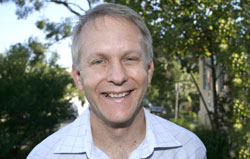
IN THE 2009-10 National Greenhouse and Energy Report, The Uniting Church in Australia Property Trust (Q.) is listed as having a significant impact on the environment, having reported its energy consumption to be more than 500 Terajoules.
The Uniting Church in Queensland reports its energy consumption as a group (the Property Trust), supplying the consumption information from UnitingCare, Wesley Mission Brisbane, Alexandra Park conference centre, the Synod office,
schools and a representative sample of congregations.
The information reported under the National Greenhouse and Energy Reporting Act includes electricity and gas usage,
as well as fuel consumption where applicable.
Energy report names Queensland Church As the Property Trust has reported its consumption to be more than 500 Terajoules, this benchmark means that we also now need to report under the Energy Efficiency Opportunities Act by
preparing and providing an assessment plan which outlines how the organisation will become more energy efficient in the future.
According to Gary Adsett, Property Services Manager, rather than thinking of the Church in Queensland as being a big polluter, this figure reflects the energy required to perform ministry and mission across a large, multi-site organisation.
“Blue Care staff drive hundreds of kilometres to visit patients and there would be significant energy used in diagnosing
and treating patients in hospitals,” said Mr Adsett.
Based on the assessments of data to date, 80 per cent of the Church’s energy consumption comes from the activities of UnitingCare, which will coordinate the Church’s reporting to the Department of Resources, Energy and Tourism.
“UnitingCare has established a project control group to represent agencies in assessing and analysing energy consumption and look for alternative strategies to reduce the Church’s impact on the environment,” said Mr Adsett.
“The Synod offi ce, schools and congregations also have a role to play in regularly reviewing their energy consumption
practices and looking for opportunities for continual improvement.
“In particular, when buildings are constructed or renovated, as well as following legislation, we exercise a preference for
energy efficient design, materials and equipment where possible.”
Photo : Queensland Synod Property Services Manager, Gary Adsett. Photo by Holly Jewell
 JourneyOnline
JourneyOnline






